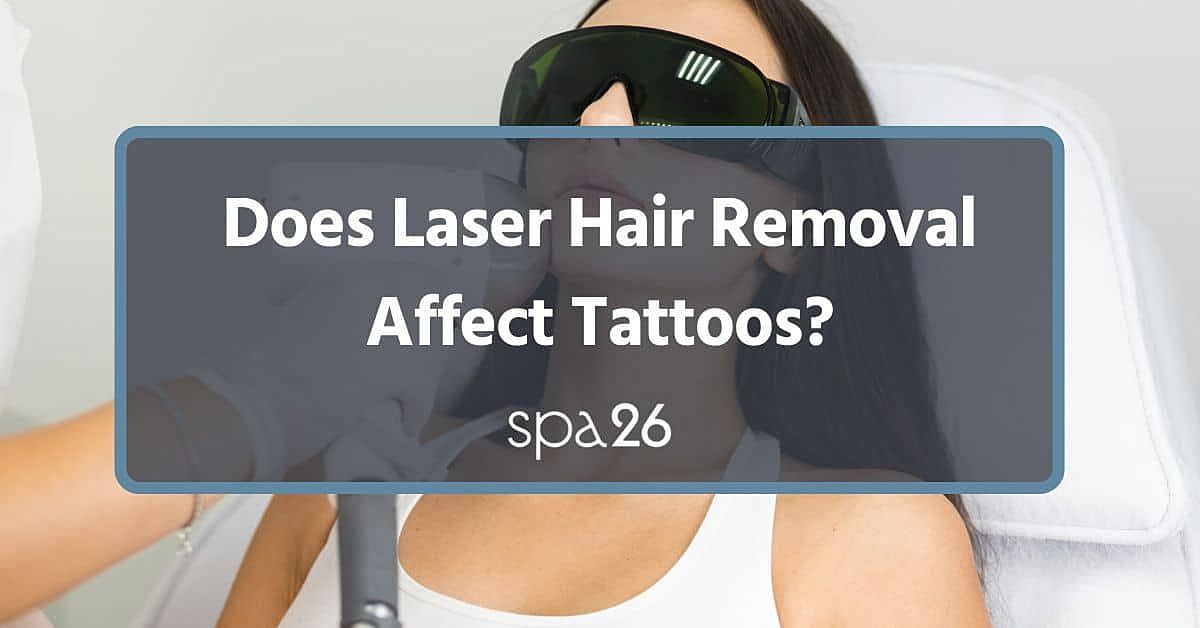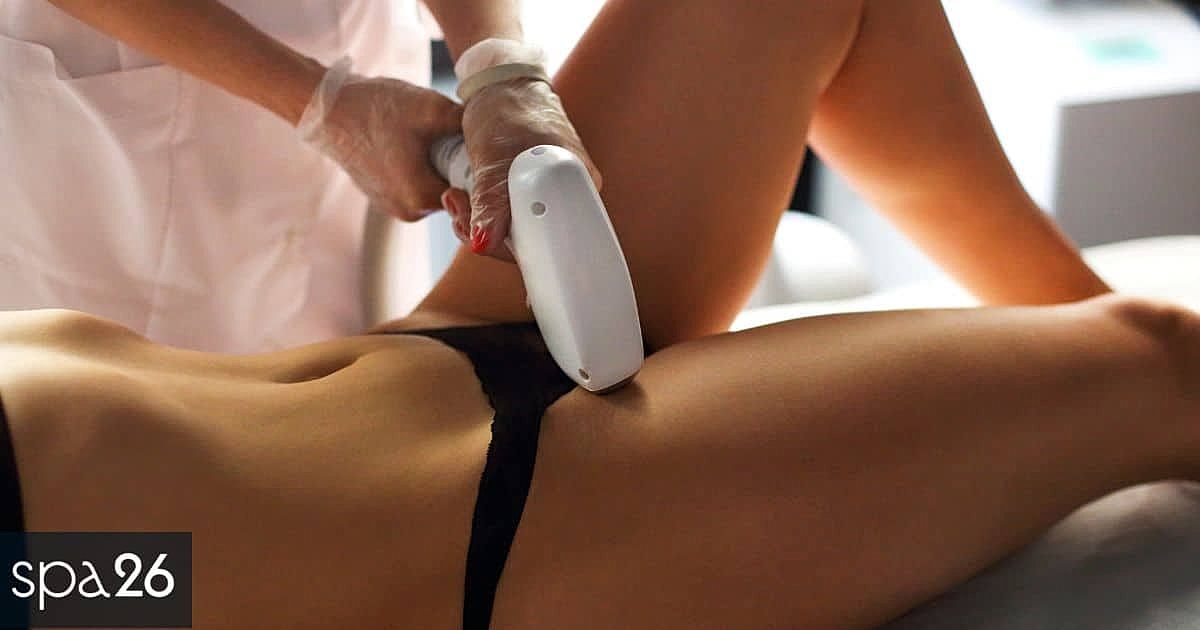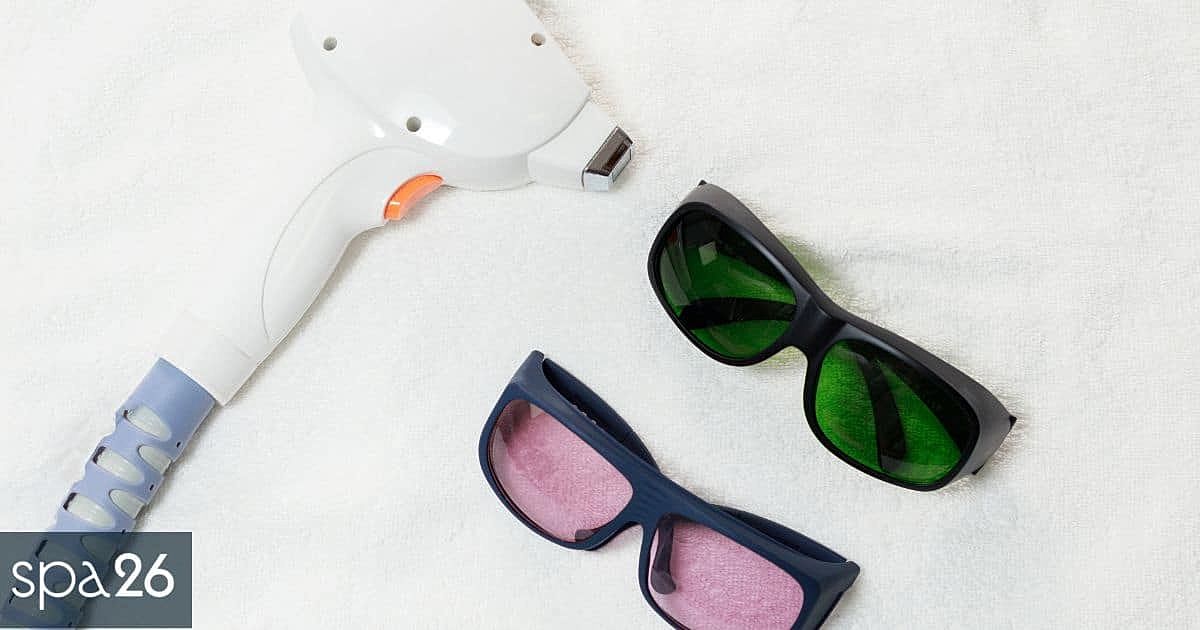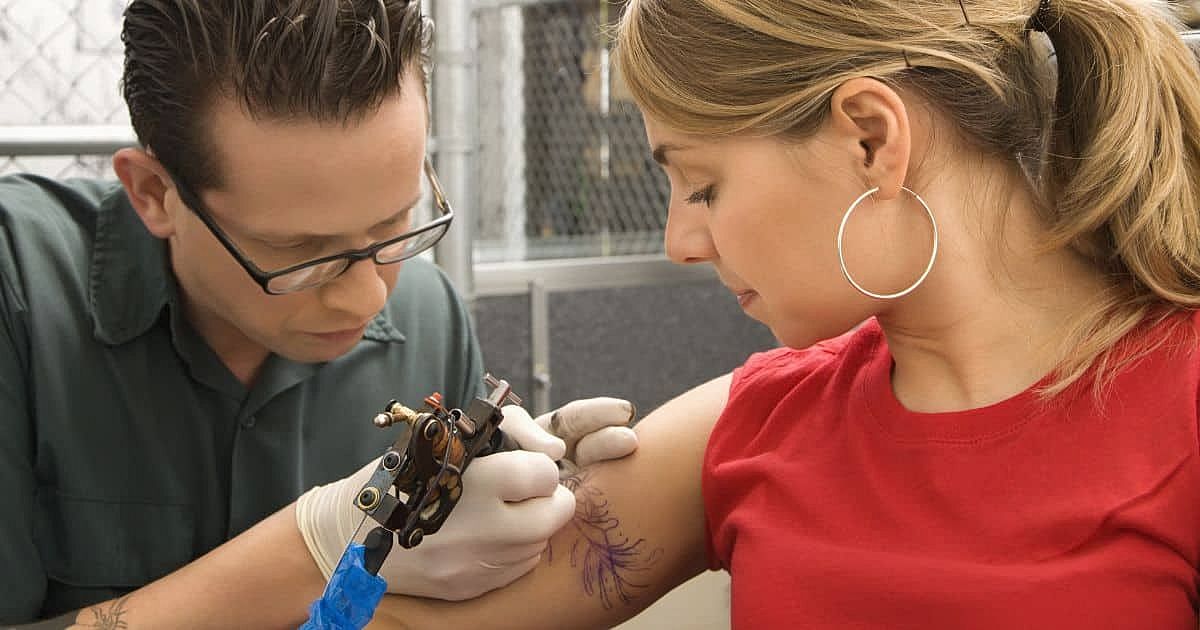

 Does Laser Hair Removal Affect Tattoos?
Does Laser Hair Removal Affect Tattoos?Apr 20, 2025
Laser hair removal is a safe, effective way to remove unwanted body hair. It’s a common curiosity among the elegantly inked to know whether advanced laser technology might compromise the beauty of their body art.
Yes, laser hair removal affects tattoos. Laser hair removal targets pigment in hair follicles. Since tattoo ink also contains pigment, the laser can react with it. This can cause burns, scarring, or fading of the tattoo.
Considering laser hair removal but adorned with exquisite ink? At Spa26, we understand the importance of preserving both your skin and your tattoos while indulging in luxurious treatments. Our Alma Soprano laser hair removal offers a gentle, effective solution that is carefully designed to work around your body art without causing any damage or fading. With its advanced technology, you can enjoy silky smooth skin while maintaining the vibrancy of your tattoos. Experience the refined artistry of Alma Soprano at Spa26, where luxury meets precision. Contact us today!
This post will explore how laser hair removal can impact tattoos, the risks involved, and the precautions you should take to protect your ink and skin.
Laser hair removal works by directing concentrated beams of light toward the melanin pigment in hair follicles. This light is absorbed by the pigment and transformed into heat, which gently damages the follicle to slow or stop future hair growth. It’s a precise and refined process that selectively targets hair without harming the surrounding skin. This makes it both effective and luxurious.
Among the most advanced technologies is the Alma Soprano laser. It is known for its comfort and efficacy across various skin tones. Lasers are drawn to pigment because melanin absorbs light energy more readily than lighter surrounding tissue, making targeted removal both possible and safe.
Laser hair removal and tattoo removal use different technologies. Tattoo removal lasers are designed to break down ink particles, while hair removal lasers target the melanin in hair follicles. Though they both rely on light and pigment, their precision and purpose vary greatly.
Because tattoos also contain pigment, hair removal lasers may mistakenly target the ink, especially if it’s dark. Unlike natural hair pigment, tattoo ink sits deeper and reacts differently. This makes tattoos vulnerable to fading, burns, or distortion if exposed during treatment.
Undergoing laser hair removal over tattoos carries significant risks. Laser treatment over tattoos can cause skin damage such as burns, blisters, or scarring due to its interaction with the ink’s pigment.
Additionally, the tattoo may fade or become distorted, and the treatment can be excruciating and sensitive in inked areas. This increases the chance of adverse reactions.

Laser hair removal should never be performed directly over a tattoo. The technology works by targeting pigment in the hair follicle. However, tattoo ink is rich in pigment and can also absorb the laser’s energy. This interaction can result in unwanted side effects such as scars, blisters, fading, or discoloration of the tattoo. To protect your body art, the laser must be carefully kept away from tattooed skin to preserve both your safety and the aesthetic of your ink.
Before beginning any treatment, it’s important to consult with both your laser hair removal technician and your tattoo artist. A skilled professional can assess your skin type, tattoo placement, and overall goals to recommend the most suitable approach. In cases where hair removal is desired near a tattoo, the technician can delicately adjust the laser’s settings to avoid direct contact. This is to ensure a refined treatment that works around the ink without compromising it.
For the tattooed regions themselves, opt for alternative hair removal methods such as shaving, waxing, or threading. These techniques are gentle on pigmented skin and maintain the luxury and integrity of your tattoo without potential risks.

Yes, laser hair removal can be performed safely on tattooed skin, but only with thoughtful precautions. Direct laser contact with the tattooed area must be avoided. This is because pigment in the ink can react to the laser, risking damage or discoloration. A skilled technician will carefully work around the tattoo to preserve its beauty.
To ensure a smooth experience, the laser settings should be expertly adjusted, and post-treatment care is essential. Use soothing products and avoid sun exposure to maintain both radiant skin and vibrant ink.
Experience the safety and expertise you deserve with Alma Soprano lasers at Spa26. Trust our skilled technicians for a flawless, luxurious treatment. Contact us today.
To preserve the beauty and integrity of your tattoo during laser hair removal, it’s of great importance to take thoughtful precautions. Begin by covering the tattoo with a high-quality protective barrier, such as a medical-grade patch or opaque dressing, to shield it from unintended laser exposure. This layer not only guards the skin but also helps prevent the laser from interacting with your tattoo pigment, which could otherwise lead to burns, scarring, or color distortion. For the best results, ensure the barrier is applied smoothly and securely before your session begins.
Communication is equally important. If you desire to perform laser hair removal, always inform your technician of the tattoo’s exact location. A skilled professional will then adjust their approach and carefully avoid direct laser contact with the pigmented area. In some cases, they may recommend using cooling gels or specialized shields to further protect the skin and enhance your comfort. These luxurious touches not only elevate your experience but also safeguard your artwork, allowing you to enjoy both smooth skin and flawless ink.
Laser hair removal treatment should be performed at least one inch away from any tattoo to avoid direct exposure that could damage the ink or skin. An experienced technician will carefully adjust the settings and work around the tattooed area, ensuring safe, precise treatment without compromising the beauty of your artwork or the health of your skin.

Before getting a new tattoo after laser hair removal treatment, allow your skin a healing window of at least 2–4 weeks. This makes sure any redness, irritation, or inflammation has fully subsided, and gives your skin the calm, smooth canvas it needs.
Consult with both your laser technician and tattoo artist to confirm your skin is ready and that timing aligns with your aftercare routine. Make sure to carefully cover the area from sun exposure and luxuriate in high-quality sunblock to maintain skin integrity and tone. This thoughtful approach makes certain that your tattoo experience is not only safe but beautifully seamless.
Laser hair removal can affect tattoos if proper precautions aren’t taken, potentially causing skin damage or fading ink. To ensure a safe and effective treatment, always inform your technician about any tattoos. With expert care and clear communication, you can protect your skin and your artwork.
At Spa26, we blend advanced laser technology with personalized, expert care to deliver a truly refined hair removal experience. Our certified specialists tailor each treatment to your unique skin and hair type and prioritize your safety, especially around tattoos or sensitive areas. Let us guide you with elegance and precision every step of the way. Begin your journey to effortlessly smooth skin by booking a private consultation.

Sheila Nazarian is the founder and operator of Spa26. Dr. Nazarian’s Spa26 patients benefit from her numerous qualifications. She has years of training and expertise as a board-certified plastic surgeon. She graduated from Columbia University, where she concentrated in pre-med. She studied medicine and earned her doctor of medicine degree at Albert Einstein College of Medicine at Yeshiva University.

Spa26 offers luxury skincare, anti-aging treatments, and wellness services. Consult with our experienced team at (424) 544-3362.